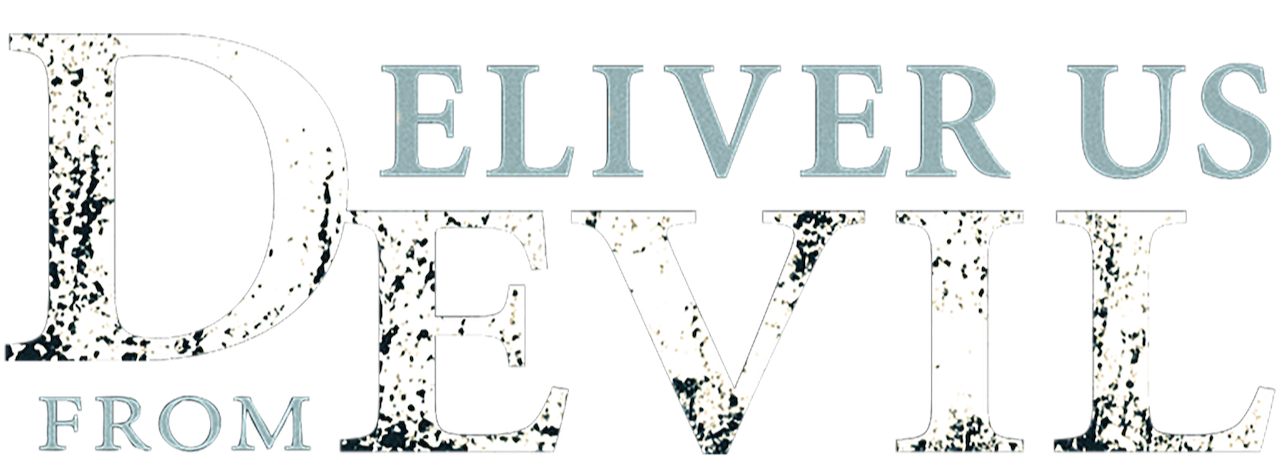[NOTE: This blog post pairs with our ORIGINS teaching series at The Meeting House, Week 1: Love’s Great Choice. If you haven’t heard that message, you might want to begin there before reading on here.]
I hope you, like me, base your faith on Jesus – not young-earth-creationism or old-earth-evolution or Intelligent-Design or any other origin theory.
This disposition allows us to follow the evidence wherever it leads concerning how or how long God created. Our faith does not stand or fall on any particular interpretation of Genesis 1 since our faith is in Jesus, through whom God made the universe (John 1:3; Hebrews 1:2).
That said, it seems fairly evident from the text of Genesis that the six “days” of creation are not required to be understood as literal 24 hour chunks of time. I’m not contrasting the Bible VS science – I’m referring to what the biblical text itself is saying.
As we learned in our Sunday teaching at The Meeting House…
- The sun and moon, from which we get our 24 hour cycle, weren’t created until the fourth “day”.
- The sixth “day” in chapter 2 seems longer than 12 hours of daylight – how could 12 or 24 hours be enough time to create animals, then create Eden, then create Adam and place him in Eden, then instruct him on gardening and the moral decision of avoiding the which tree and why, then have time to name all living animals, take a nap, and meet his new bride? Just the animal naming alone must have taken months. “Day” six seems like a longer period of time.
- The seventh “day” of rest has no “evening and morning” and instead seems to be ongoing, even today, and we are invited to enter into God’s sabbath rest (see Hebrews 4).
- And most straightforwardly, the word “day” (yom in Hebrew) is used elsewhere in the Bible to refer to indeterminate, often much longer, periods of time (e.g., Genesis 2:4; Exodus 2:11; Job 24:6; Proverbs 25:13), like we might say “back in the day”.
So, why not just go with an old Earth theory as the most faithful to Scripture? Why not accept the idea that God created life on our planet through the long process of evolution?
Recently our twelve-year-old daughter, Maya, came to me with her first “crisis of faith”. She explained, “I know that evolution is supposed to work over millions of years, but the Bible says God made everything in six days. So, what’s up with that?”
After I celebrated her astute observation and critical thinking, we sat down and opened the Bible together and I pointed out some of the above points about how the Bible uses the word “day”. Then I also drew her attention to the order of creation in Genesis 1: first inorganic matter, then life begins, starting with plants, then life in the seas, then birds, then mammals, and finally humans. We talked about the possibility that God is very smart at explaining the process of evolution in a way that all people of all times could understand. Maya thinks God is pretty cool.
But was I right? Some Christians, including many that I respect and admire as followers of Jesus, would argue against what I taught Maya. They would contend that evolution necessarily contradicts the Bible. And why is that? Why not just accept current scientific consensus? What’s the problem?
The problem can be summed up in one word…

DEATH.
Twice in the New Testament (Romans 5:12-21 and 1 Corinthians 15:21-22, 44-49) the apostle Paul says that death entered the world when Adam and Eve sinned. See here…
Just as through one human being sin came into the world, and death came through sin, so death has come to everyone, because everyone has sinned. Although sin was in the world, since there was no Law, it wasn’t taken into account until the Law came. But death ruled from Adam until Moses, even over those who didn’t sin in the same way Adam did—Adam was a type of the one who was coming.
(Romans 5:12-14)
That seems pretty straightforward. And pretty significant. Entire theories of how sin works and how atonement works have been built around the idea of a literal Adam being the literal entrance point for human sin, which opens the door for literal death to enter an otherwise perfect world. There is a lot riding on this. And I can understand why. If we take Paul at face value, then the idea of millions of years of “survival of the fittest” leading up to Adam and Eve, with lots of death as part of that necessary machinery, is impossible for a Bible-believing Christian to embrace.
Unless…
It may be possible, even probable, that the apostle Paul is referring to spiritual death – our separation from the God of life. That seems to be the kind of death God is talking about in Genesis. Remember that Adam was told that if he ate from the bad tree, “on that day” he would surely die.
From the tree of the knowledge of good and evil you shall not eat, for in the day that you eat from it you will surely die. (Genesis 2:17)
Except, he didn’t.
Or did he?
On that day Adam ran from God, hid in the bushes, and accused both God and his new wife of causing his condition. The separation was real. Adam did die, in a way. And it was caused by the always-separating force of sin.
A spiritual death makes sense of the Genesis account, otherwise you have God promising a physical death that never comes when God promises it will come. And if spiritual death is the immediate consequence for sin in Genesis (followed by a later physical death because of being barred from the Tree of Life), then it follows that this spiritual death is what Paul has in mind as well when he’s talking about Adam and Eve. Scripture is consistent.
This opens up the door for a Bible-believing Christian to embrace the possibility of evolution as a tool God used to create the varieties of life on planet Earth. Do I believe this is the best route forward? I don’t know. Discovering the Bible’s openness to an old earth answers some questions while raising others…
Do we consider death and pain “good” parts of creation? Is Eden merely God’s good greenhouse in the middle of a planet marred by suffering and death? Were Adam and Eve commissioned to go out from Eden and rule over the rest of creation in order to help it become more Edenic?
It’s worth noting that the Hebrew word for “good” that God uses to describe his creation in the first chapter of Genesis is different than the word for “perfect” or “sinless”. In fact, in the last chapter of Genesis, this same word for “good” is used to by Joseph to describe a series of evil things that God intended for a loving purpose.
You intended to harm me, but God intended it for good to accomplish what is now being done, the saving of many lives. (Genesis 50:20)
Perhaps God’s creation was “good” because it was accomplishing what he wanted it to bring about.
Still, this leaves us with the question: Why would God choose to use the death and suffering inherent in the system of evolution to create his “good” world? Is it possible that the destructive power of sin was at work well before the time of Adam and Eve? Is evolution an example of God bringing good out of evil, like in the story of Joseph? Should we think of the real “Fall” from grace as the fall of Satan from heaven to our primordial planet Earth long before Adam and Eve were created?
The great dragon was hurled down—that ancient serpent called the devil, or Satan, who leads the whole world astray. He was hurled to the earth, and his angels with him.
(Revelation 12:9)
Is your head spinning yet? Many of us are still sorting this all through. And without any threat to our faith, which is built upon the solid rock of Christ and his teaching (Matthew 7:24-27).
Yes, at this point, there are more questions than answers, but that’s exactly what we should expect if the apostle Paul was right when he said…
For now we see in a mirror dimly, but then face to face; now I know in part, but then I will know fully just as I also have been fully known.
(1 Corinthians 13:12)
For now, we can be confident of the most important take-aways from Genesis 1…
- God is good, artistic, and loving.
- God (Father, Son, and Spirit) made us all to be like God, to love and create like God, and to do it all in partnership with God.
- Humans have a mission, a calling, a purpose: to represent God – his love and creativity and care – to this world.
- The seventh day is open-ended and ongoing. And, according to Hebrews 4, we are invited to enter into God’s sabbath rest with him.
- The story of Adam and Eve is not just an origins story, but also our story, repeated by us in every generation. We know better, and still we choose the selfish pursuit of our own pleasure at the expense of others people and our planet.
About that last point – notice that our guilt is not just something we can blame our parents (or ancient ancestors) for, because we repeat the story of Adam and Eve again and again, failing to make better choices than they did. Remember what the apostle Paul says in that Romans 5 passage…
Just as through one human being sin came into the world, and death came through sin, so death has come to everyone, because everyone has sinned. (Romans 5:12)
In the end, we can’t blame Adam and Eve, or Mom and Dad. The story of Genesis is the story of us.
Whether you believe in a young or old Earth, a literal or figurative Adam, or a geographical or metaphorical Eden, I’m looking forward to interacting with you during this series of blog posts, Sunday sermons, and Home Church discussions. To that end, I’m looking forward to your comments to this post at the bottom of this page!
I hope we all, with inquisitive and curious kindness, enjoy the journey of seeking answers, together.
Peace,

PS: For the keeners, here’s a starter pack of some extra reading resources…
- Genesis: History, Fiction, or Neither? (Three Views), Counterpoints Series
- The Historical Adam (Four Views), Counterpoints Series
- Death Before The Fall, by Ronald F. Osborn
- Adam and the Genome, by Dennis R. Venema and Scot McKnight
- The Lost World of Genesis One, by John H. Walton
- The Lost World of Adam and Eve, by John H. Walton
- God Against Religion, by Matthew Myer Boulton
- Standing on the Shoulders of Giants: Genesis and Human Origins. Wipf&Stock, 2016, by Luke Janssen – a scientist and a Christian (but not a Christian Scientist) in our own Hamilton, Ontario!
Enjoy!



